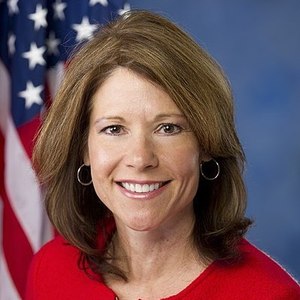Bill forces EPA to act on RFS pathway, registration petitions

November 18, 2020
BY Erin Voegele
Reps. Cheri Bustos, D-Ill., and Jim Hagedorn, R-Minn., on Nov. 18 introduced the Streamlining Advanced Biofuels Registration Act, which aims to force the U.S. EPA to act on outstanding Renewable Fuel Standard pathway and registration applications. Similar legislation was introduced in the U.S. Senate in June.
In order to produce biofuels that obligated parties can use to meet annual RFS blending obligations, biofuel producers must submit a fuel pathway application with the U.S. EPA and receive approval from the agency. The EPA however, has refused to act on dozens of applications filed on behalf of biofuel producers, particularly those seeking pathway approvals for cellulosic biofuels produced with corn fiber and those for renewable electricity.
Background information released on the bill explains that the EPA has, to date, refused to finalize long-outstanding pathway applications and follow its own guidance for certifying eligibility through existing pathways. Despite clear direction from Congress, the agency has yet to allow any renewable electricity producer participate in the RFS program. That inaction has artificially driven down the amount of low carbon fuels produced under the RFS, has stranded investment in U.S. technologies, and undercut the commercialization of low carbon transportation solutions. Information released by Bustos also stresses the agency’s inaction has denied access to the program for deserving participants that produce electricity from farm and forest feedstocks that are already qualified under the RFS.
The bill introduced by Bustos and Hagedorn would force the EPA to act on outstanding applications submitted to the EPA before Nov. 17, 2020. The EPA is to either accept or reject those back-logged applications. The bill also compels the agency to decide by deeming them accepted if, after 90 days, this fuel could participate in at least one state’s clean transportation program. Finally, the bill would require to act within 180 days of the bill’s passage on pathway applications that the agency deemed complete 180 days or more before the passage of the bill.
Advertisement
Advertisement
Similar legislation was introduced by Sen. John Thune, R-S.D., and Jeanne Shaheen, D-N.H., on June 17.
Several representatives of the biofuels and bioenergy industries have spoken out in support of the legislation.
“We applaud Representatives Bustos and Hagedorn for introducing this legislation to streamline pathways for low-carbon biofuels,” said Growth Energy CEO Emily Skor. “Unnecessary delays have stalled progress on the biofuels industry’s ability to harness clean energy from agricultural residue, corn fiber, and waste. We know that cellulosic technologies can reduce greenhouse gas emissions by 100% or more, providing options for negative-emissions liquid fuels and providing a low-cost alternative to petroleum-based aromatics that poison our air and threaten our health. This important legislation will help clear the deck on long-overdue approvals and jumpstart growth in these innovative technologies at a time when revitalizing rural communities has never been more important.”
Advertisement
Advertisement
“The Biomass Power Association is grateful to Rep. Bustos and Rep. Hagedorn for introducing this bill and holding EPA to account for the qualifying fuels it hasn’t yet included in the RFS,” said Carrie Annand, executive director of Biomass Power Association. “Electricity producers have been waiting for nearly 13 years to be included in the program, even after RFS2 made clear that electricity generated from approved feedstocks qualifies to generate RINs. It’s time for the EPA to do its job by processing applications for electricity producers and others to participate in the RFS. We urge swift approval and enactment of this bill.”
“The American Biogas Council (ABC) is very thankful for the introduction of this bill by Representatives Bustos and Hagedorn. We believe it proposes a reasonable solution to a long running problem which has led to delays in the development of biogas to electricity projects,” said Patrick Serfass, executive director of the ABC. “As a result of the unprocessed applications at EPA, many biogas developers have decided to forgo applying to the program rather than devoting resources to a process that would leave them in limbo. Biogas projects want to participate in the RFS by making electricity. We are hopeful this legislation will enable them to do so.”
“We applaud Congresswoman Bustos and Congressman Hagedorn for proposing a bipartisan and common sense solution to the regulatory logjam blocking cellulosic biofuels from the consumer marketplace,” said Brooke Coleman, director of the Advanced Biofuels Business Council. “There are dozens of registration applications in seemingly perpetual review at EPA, freezing the commercial deployment of low-carbon, cellulosic biofuels and discouraging investment in U.S. innovation. This legislation takes the critical first step of recognizing the problem and forcing EPA to rule on long-overdue pathway and registration petitions. The cellulosic biofuels industry is ready to help decarbonize and revitalize the U.S. economy – solving the EPA registration problem is a critical piece of the puzzle.”
Related Stories
Luxury North Dakota FBO, Overland Aviation—together with leading independent fuel supplier, Avfuel Corp.— on May 19 announced it accepted a 8,000-gallon delivery of sustainable aviation fuel (SAF) on May 12.
May 21 marks the official launch of the American Alliance for Biomanufacturing (AAB), a new coalition of industry leaders committed to advancing U.S. leadership in biomanufacturing innovation, competitiveness, and resilience.
A group of 28 House members on May 16 sent a letter to President Donald Trump urging his administration to adopt timely, robust Renewable Fuel Standard renewable volume obligations (RVOs) for 2026 and beyond.
Neste and FedEx, the world’s largest express cargo airline, have agreed on the supply of 8,800 metric tons (more than 3 million gallons) of blended Neste MY Sustainable Aviation Fuel to FedEx at Los Angeles International Airport (LAX).
A bill to formally adopt a revenue certainty mechanism to support the production of SAF was introduced in the U.K. Parliament on May 14. The proposed scheme is in the form of a guaranteed strike price.
Upcoming Events










